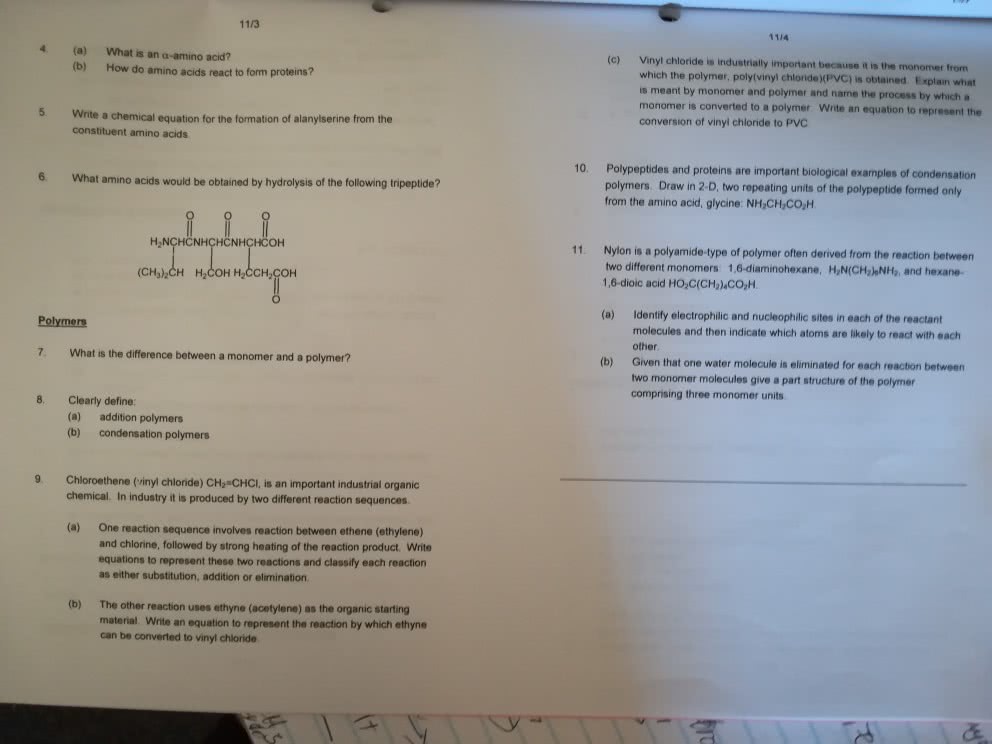CHEM392A Chapter 2: chapter two notes.docx
Document Summary
Monomer: a molecule of relatively low molar mass that is linked with other similar molecules to form a polymer. Polymer: a molecule of large molar mass that consists of many repeating subunits (monomers) Polymerization: the process of linking monomer units into a polymer. Addition polymer: a polymer formed when monomer units are linked through addition reactions all atoms present in the monomer are retained in the polymer. Recall: alkenes undergo addition reactions with hydrogen halides, chlorine, bromine, or hydrogen add to. Alkenes can also react with other alkenes double bond in each broken, forming single bonds with each other. C=c + c=c + c=c -c-c-c-c-c-c- or [c-c]n- Polypropene: propane undergoes addition polymerization, producing polypropene (rope) very similar reaction with polyethene, only with the substitution of a methyl group of h. Polyvinyl chloride (pvc): an addition polymer of chloroethene. Polystyrene: benzene ring attached to ethane molecule vinyl benzene (styrene), addition of styrene is polystyrene.



